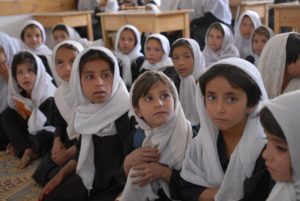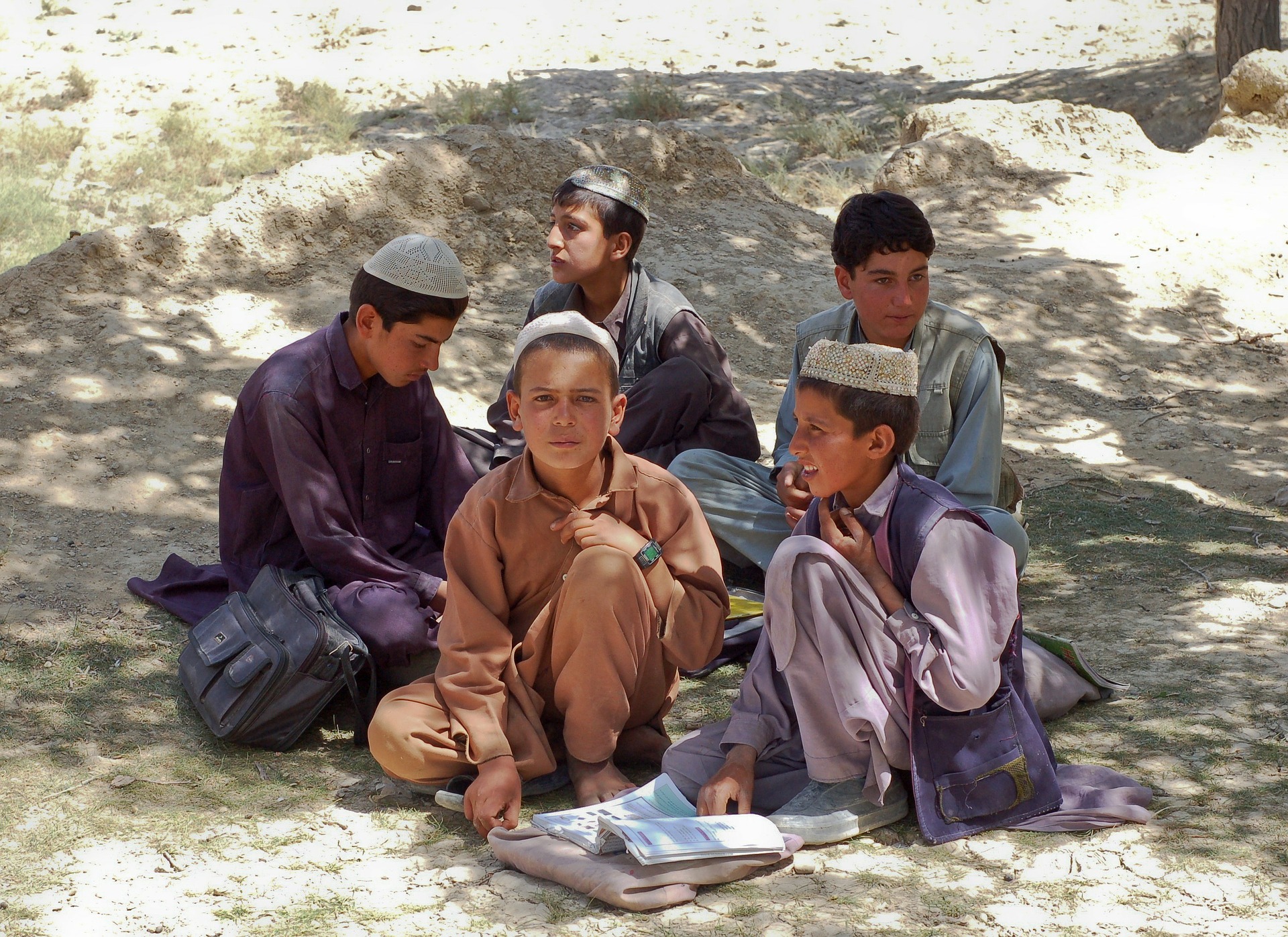As part of its mission to improve lives across the diverse regions of a dynamic and rapidly developing Asia, The Asia Foundation works hard to improve the quality of local education and expand access to educational opportunities in all areas where it operates. In Afghanistan, The Asia Foundation works closely with local NGO partners, as well as all levels of the formal education system, to strengthen all areas of Afghanistan’s education system, including student enrolment and achievement, teaching quality, curriculum development, and school infrastructure.
The educational programs supported by The Asia Foundation—all of which are carefully aligned with the strategies and priorities of Afghanistan’s ministries of Education and Higher Education—focus on boosting primary school literacy, improving teacher training, facilitating civil society and government agency participation in the educational sector, as well as developing employment-oriented educational initiatives. Read on to learn more about some of The Asia Foundation’s most recent work in the world of Afghan education.
Programs to enhance numeracy and literacy skills
 Books for Asia—Established nearly 15 years ago, the foundation’s Books for Asia program has delivered millions of books and educational materials to provincial schools, universities, public libraries, NGOs, and government ministries in all 34 of Afghanistan’s provinces. One of the Books for Asia program’s biggest achievements in Afghanistan has been the distribution of a special collection of traditional Afghan folktales to schools across the country. Published by Hoopee Books, the collection was written in English, Pashto, and Dari. Since 2012, more than 1.2 million of these books have been donated to nearly 600 schools.
Books for Asia—Established nearly 15 years ago, the foundation’s Books for Asia program has delivered millions of books and educational materials to provincial schools, universities, public libraries, NGOs, and government ministries in all 34 of Afghanistan’s provinces. One of the Books for Asia program’s biggest achievements in Afghanistan has been the distribution of a special collection of traditional Afghan folktales to schools across the country. Published by Hoopee Books, the collection was written in English, Pashto, and Dari. Since 2012, more than 1.2 million of these books have been donated to nearly 600 schools.
Primary school programs—Children who learn literacy and numeracy skills at a young age are much more likely to go on to pursue higher education. This is the reason why The Asia Foundation supports a number of local organizations, such as the Afghanistan Center at Kabul University (ACKU) and the IT company Liwal, Ltd., in building a strong culture of reading for primary school children in Afghanistan. Through initiatives such as increased library access and the publication of easy-to-read books, these partners are working to make reading easy and fun for young Afghan students, as well as their parents and adult family members. Liwal, Ltd. is also developing an innovative new mobile app for primary school literacy in collaboration with The Asia Foundation. The app, which will initially be available to 2,000 Kabul children from grades one to three, will help them to read books in Dari and Pashto.
Libraries—The Afghanistan Center at Kabul University (ACKU), the only library in Afghanistan to house a comprehensive collection of research materials, has been visited by over 61,000 users since 2015. In addition to providing technical support and fiduciary oversight to ACKU, The Asia Foundation supports the Center’s Afghanistan Box Library Extension program (ABLE). Created in an effort to help provide remote communities with much-needed educational materials, ABLE creates new “box libraries” (which are basically conveniently located depositories of books) in isolated areas, and expands the collections of existing libraries. In the past year alone, 17 new box libraries have been created and more than 20,000 books and learning materials have been sent to libraries.
Programs for curriculum development
Given the significant percentage of students who do not pass the math and science sections of Afghanistan’s national public university entrance exam, known as the Kankor exam, it is clear that the math and science curriculum in Afghanistan’s public school system is in need of improvement. To this end, The Asia Foundation has formed a close partnership with the General Directorate of Science and Education Technology, the Ministry of Education department that oversees both curriculum development and teacher training.
Together with the Directorate, The Asia Foundation is supporting the training of 900 math and science teachers, as well as 65 lab technicians, in Badakhshan, Kandahar, and Khost. The goal is not only to create a more relevant and comprehensive curriculum, but to ensure that the teachers themselves are more comfortable with the material and thus better able to support their students. Up-to-date equipment can also make a big difference in students’ learning experience. The Asia Foundation has helped to distribute 300 pieces of laboratory equipment to 54 of those schools involved in the curriculum development program.
Programs for organizational capacity building
While Afghan-led programming makes the most sense for an effective Afghan school system, many educational organizations that would normally take the lead in this area lack the capacity, resources, or organizational governance to do so. To help address this discrepancy, The Asia Foundation conducts an organizational capacity development assessment—a participatory tool that provides a complete overview of an organization—for each of its local education partners in order to evaluate organizational stability and sustainability. When deficiencies or challenges are identified, the foundation provides training sessions to help the organization bridge the gap. Sessions can cover topics such as human resources, financial sustainability, strategic planning, and finance and administration. The overall goal is to help local organizations build their own effective governance structures and reduce dependence on funding from international donors.

